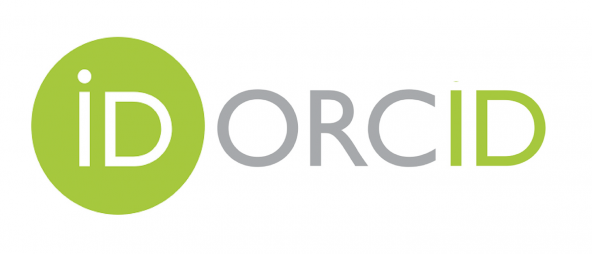Prevention of Diarrhea and Worms in Elementary School in the Pasirkaliki Health Center area, Bandung
Abstract
Keywords
Full Text:
PDFReferences
Abil Rudi. (2020). Sosialisasi Cuci Tangan Pakai Sabun Dengan Air Mengalir Sebagai Upaya Pencegahan Covid-19 Pada Siswa-Siswi SD Muhammadiyah Sintang, Kalimantan Barat. JURPIKAT (Jurnal Pengabdian Kepada Masyarakat), 1(3), 241–248. https://doi.org/10.37339/jurpikat.v1i3.337
Chadijah, S., Sumolang, P. P. F., & Veridiana, N. N. (2014). Hubungan Pengetahuan, Perilaku, Dan Sanitasi Lingkungan Dengan Angka Kecacingan Pada Anak Sekolah Dasar Di Kota Palu. Media Penelitian Dan Pengembangan Kesehatan, 24(1), 50–56. https://doi.org/10.22435/mpk.v24i1.3487.50-56
Kartini, S. (2016). Kejadian Kecacingan pada Siswa Sekolah Dasar Negeri Kecamatan Rumbai Pesisir Pekanbar. Jurnal Kesehatan Komunitas, 3(2), 53–58. https://doi.org/10.25311/jkk.vol3.iss2.102
PERATURAN MENTERI KESEHATAN REPUBLIK INDONESIA NOMOR 3 TAHUN 2014 Tentang Sanitasi Total Berbasis Masyarakat, 1 (2014).
PERATURAN MENTERI KESEHATAN REPUBLIK INDONESIA NOMOR 15 TAHUN 2017 TENTANG PENANGGULANGAN CACINGAN, (2017).
Luis, R., Tuda, J. S. B., & Sorisi, A. (2016). Kecacingan usus pada anak sekolah dasar di Tanawangko Kecamatan Tombariri Kabupaten Minahasa. Jurnal E-Biomedik, 4(2), 2–5. https://doi.org/10.35790/ebm.4.2.2016.13998
Nasir, N. M., Farah, W., Desilfa, R., Khaerudin, D., Safira, Y., & Virlian, V. (2020). Edukasi Perilaku Cuci Tangan Pakai Sabun Pada Siswa Sd Di Tangerang Selatan. AS-SYIFA : Jurnal Pengabdian Dan Pemberdayaan Kesehatan Masyarakat, 1(1), 45. https://doi.org/10.24853/assyifa.1.1.45-49
Purwandari, R., Ardiana, A., & Wantiyah. (2015). Hubungan Antara Perilaku Mencuci Tangan Dengan Insiden Diare Pada Anak Usia Sekolah Di Kabupaten Jember. Jurnal Keperawatan, 4(2), 122–130.
Putri, S. T., Andriyani, S., Salasa, S., & Adikusuma, T. (2018). Pemberdayaan Masyarakat Dalam Pengelolaan Kesehatan Melalui Pendekatan Adaptive Conservation Di Kelurahan Padasuka Kota Bandung. JPPM (Jurnal Pengabdian Dan Pemberdayaan Masyarakat), 2(2), 221. https://doi.org/10.30595/jppm.v2i2.2032
Rane, S., Jurnalis, Y. D., & Ismail, D. (2017). Hubungan Tingkat Pengetahuan Ibu Tentang Diare Dengan Kejadian Diare Akut pada Balita di Kelurahan Lubuk Buaya Wilayah Kerja Puskesmas Lubuk Buaya Padang Tahun 2013. Jurnal Kesehatan Andalas, 6(2), 391. https://doi.org/10.25077/jka.v6.i2.p391-395.2017
Suharmiati, S., & Rochmansyah, R. (2018). Mengungkap Kejadian Infeksi Kecacingan Pada Anak Sekolah Dasar (Studi Etnografi Di Desa Taramanu Kabupaten Sumba Barat). Buletin Penelitian Sistem Kesehatan, 21(3), 211–217. https://doi.org/10.22435/hsr.v21i3.420
WHO. (2014). Deworming for health and development. Report of the third global meeting of the partners for parasite control. WHO.
DOI: https://doi.org/10.17509/ijcd.v2i1.45992
Refbacks
- There are currently no refbacks.
Copyright (c) 2022 Indonesian Journal of Community Development

This work is licensed under a Creative Commons Attribution-ShareAlike 4.0 International License.
E-ISSN: 2776-7078 P-ISSN: 2776-9712

This work is licensed under a Creative Commons Attribution 4.0 International License.
Jl. Dr. Setiabudi No.229, Isola, Kec. Sukasari, Kota Bandung, Jawa Barat 40154









